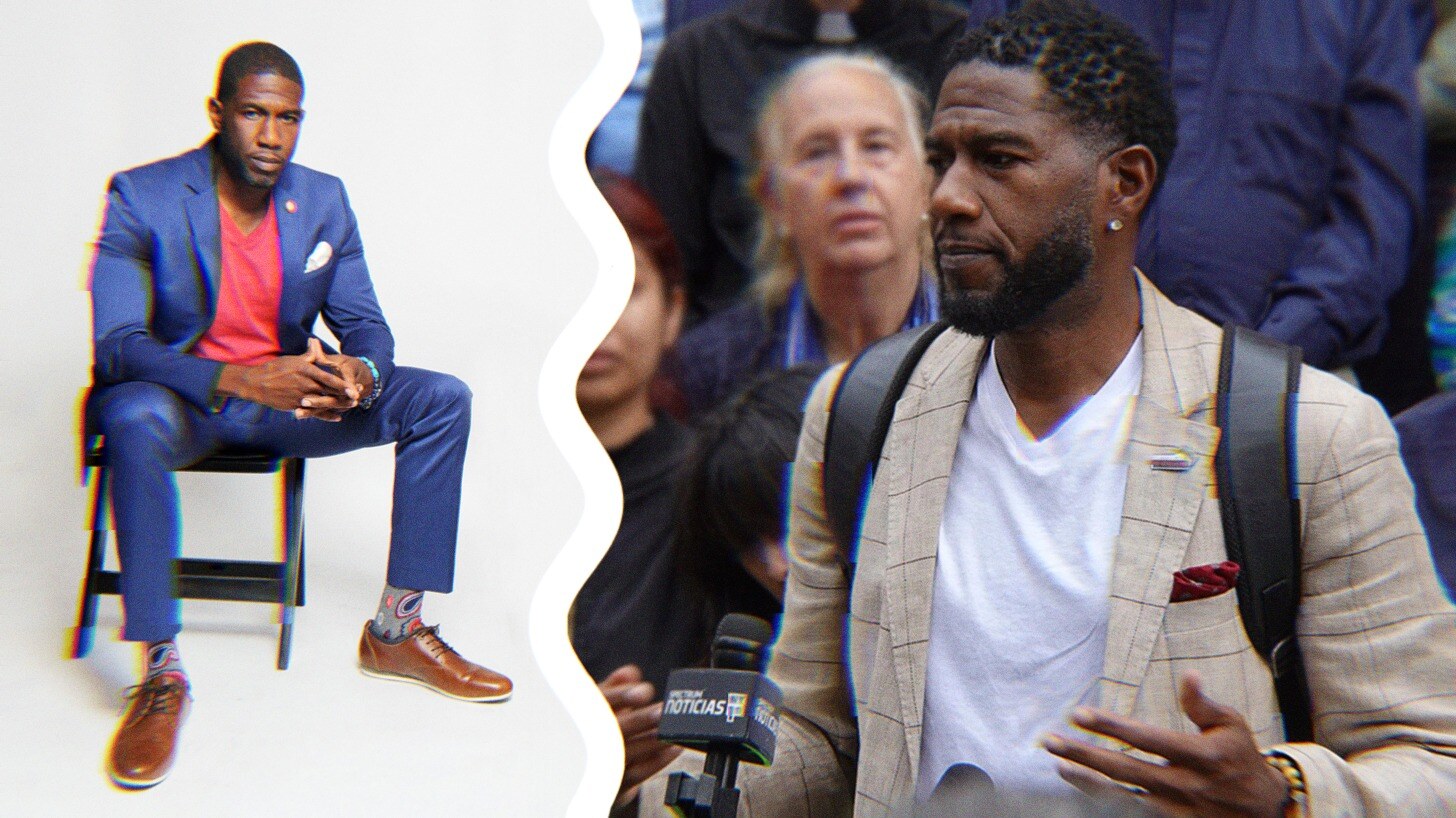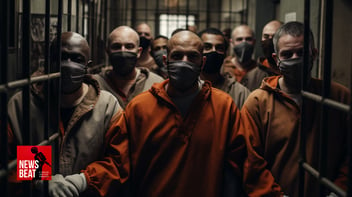Progressive Spotlight: Jumaane Williams.
Williams Has Always Been a Voice of the People.
 Image Description: Two photos of Jumaane Williams; the first is Williams sitting in a chair, the second is Williams speaking at a rally.
Image Description: Two photos of Jumaane Williams; the first is Williams sitting in a chair, the second is Williams speaking at a rally.
Attend any of the myriad protests that occur across New York City’s five boroughs on a given week, and you’ll likely spot a familiar face making the rounds: Jumaane Williams, the city’s indefatigable—and constantly roaming—public advocate.
Williams has served in that watchdog role since his victory in a 2019 special election. While not a position that catapults one to national fame, recent history shows it can be a stepping stone—his two predecessors, former Mayor Bill de Blasio and State Attorney General Letitia James, both vaulted to greater prominence after tenures as public advocates.
Williams, by product of his position, may take the reigns of the city sooner than even he expected. As public advocate, Williams is the legal successor to the mayor’s office if the seat becomes vacant. Such a political earthquake became a possibility in late September when Mayor Eric Adams was indicted on multiple federal corruption charges. Whether Adams chooses to resign in disgrace is another matter altogether.
Still, a potential elevation to the most powerful seat in the city is something Williams has been preparing for behind the scenes, according to The New York Times. Such talks began in late 2023 when investigators seized Adams’ devices, the paper reported.
While not quite a household name outside of the five boroughs, it doesn’t mean the Brooklyn-born Williams lacks recognition inside the city. Williams is a unique figure in New York politics, largely because of his uncompromising position on social justice issues, relentless desire to drive change, and willingness to stand in solidarity with everyday New Yorkers demanding systemic reforms.
As public advocate, Williams can mostly sidestep the Gracie Mansion dramas while influencing the sprawling city’s laws and policies through legislative proposals and operating as the official watchdog. For someone so immersed in issues impacting residents, the position affords Williams a bully pulpit on housing, homelessness, policing, environmental justice, education, economic inequality, and more.
Since being elected, Williams has introduced at least 15 pieces of legislation that passed the city council, including one that codified the right to record police, and has issued more than a dozen reports offering policy recommendations on a range of important issues.
In one such report about reimagining policies impacting the city’s unhoused population, Williams’ office wrote: “The system as it exists today is inhumane, flawed, wasteful, and self-perpetuating. It is not designed to end homelessness; at best it accommodates it, and at worst it punishes the poor. The primary populations of New Yorkers in shelters are men, women, and families of color, predominantly Black, and come out of historically redlined neighborhoods that this city has neglected with its education, environmental, health, and housing dollars.”
Another paper documenting the poor living conditions in public housing compared the current situation to the overcrowded tenements from more than a century ago.
“Conditions in too many NYCHA apartments are entirely unlivable,” the report said. “Our team saw apartments where children were bathed in bathrooms filled with black mold. We saw senior citizens struggle to move around decrepit apartments ruined from years of water damage. We saw parents forced to feed their children without cooking gas for the better part of a year. We saw families huddled together without heat or hot water during the bitter January cold.”
As he stated in his 2024 “State of the People” address on May 22, Williams sees his office as a “megaphone” to “amplify” the voice of New Yorkers.
In stark contrast to how the city’s elite weaponizes anxieties for political ends, Williams sought to directly confront the fears countless New Yorkers feel as a way of overcoming them.
“It’s easy to be a victim of the system when that system sees you as a threat,” Williams told the audience. “When you’re someone to be surveilled rather than be served. Not someone to be protected but someone to be protected from.”
“Well, they’re right, in a way. I am a threat to that system,” he continued. “I think we should build a new one. “As I’ve always said—this is not a system failing, it’s a system creating exactly what it’s meant to. We push our communities through a machine that produces primarily handcuffs and handguns.”
Williams, whose parents are immigrants from Grenada, has long been seen as a voice for those who can’t speak up for themselves. Before becoming public advocate, he spent a decade as a member of New York’s City Council and often found himself standing shoulder-to-shoulder with activists during countless protests. Williams also sees his frequent arrests during protests as a badge of honor, even highlighting it on his campaign site for his 2022 gubernatorial bid.
Williams found more success four years earlier when in 2018 he narrowly lost to now-Gov. Kathy Hochul in the race for lieutenant governor of New York—a campaign in which he and attorney general candidate Zephyr Teachout earned the endorsement of Sen. Bernie Sanders.
Don’t be surprised if there are more endorsements from prominent progressives directed at Williams in the years to come. If so, you’ll know he hasn’t stopped doing what he does best: Fighting for the rest of us.
Image Sources
- Felton Davis, CC BY 2.0, via Wikimedia Commons. Changes were made.
- Williams Headshot via jumaanewilliams.com. Changes were made.
Rashed Mian is the managing editor of the award-winning News Beat podcast and co-founder of the newly launched Free The Press (FTP) Substack newsletter. Throughout his career, he has reported on a wide range of issues, with a particular focus on civil liberties, systemic injustice and U.S. hegemony. You can find Rashed on X @rashedmian and on Bluesky @rashedmian.bsky.social.


